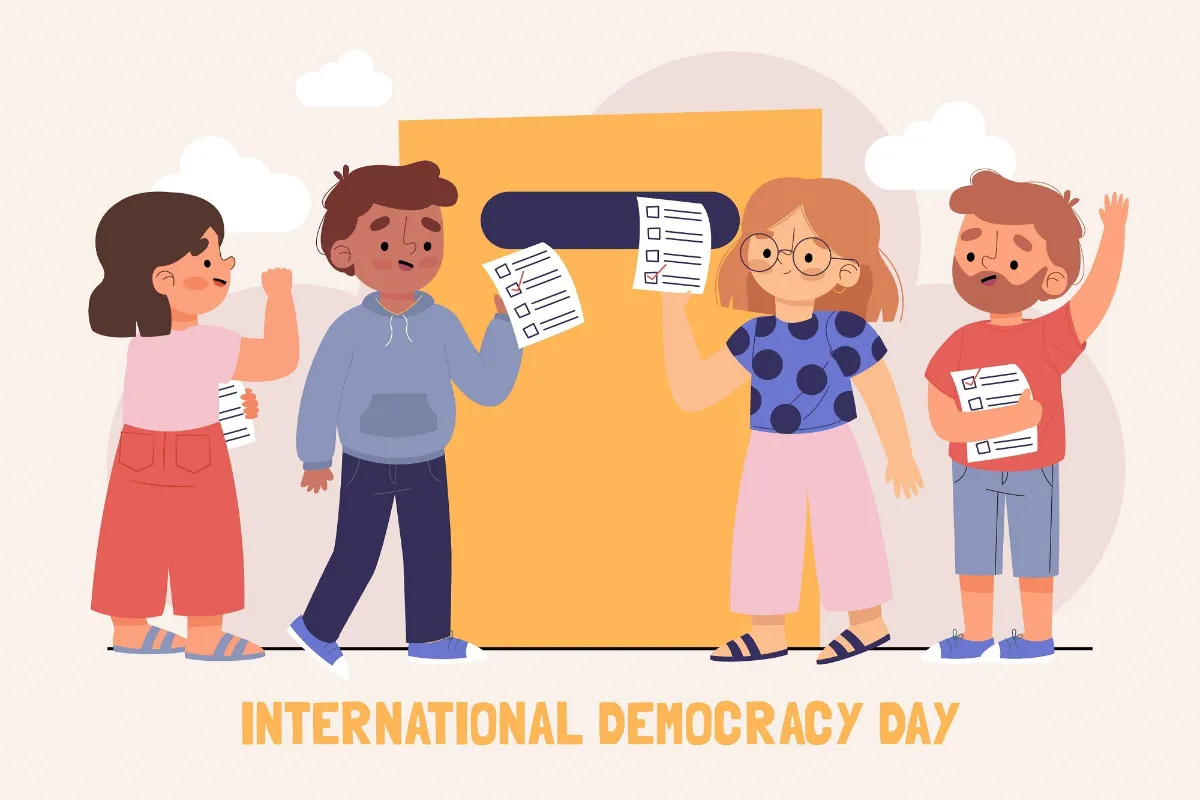In today’s world, where democracy is highly valued, referendums have emerged as a vital tool for direct democracy. These democratic exercises provide an opportunity for citizens to directly participate in decision-making processes that shape their nations. Understanding the nature, purpose, and benefits of referendums is crucial in appreciating their significance in modern politics.
Understanding the Nature and Purpose of Referendums
A referendum is a mechanism through which citizens are given the power to vote on a specific political or social issue. It allows the general public to voice their opinions and have a direct impact on the outcome of an important decision. The purpose of referendums is to enhance democracy by ensuring that major decisions are not made solely by elected representatives but are subject to the will of the people.
Referendums give citizens the chance to shape the future of their nation, encouraging active involvement and fostering a sense of ownership. This direct participation fosters a sense of empowerment and strengthens the democratic fabric of society. By engaging in referendums, citizens become the architects of their own destiny, as they have the power to shape policies and determine the direction their country takes.

One of the key benefits of referendums is that they provide an opportunity for citizens to engage in informed decision-making. Before voting in a referendum, individuals are often presented with detailed information about the issue at hand. This can include expert opinions, research findings, and arguments from both sides of the debate. Such information allows voters to make well-informed choices based on a comprehensive understanding of the topic.
Furthermore, referendums can serve as a platform for public debate and discussion. As the voting process unfolds, citizens are encouraged to express their views, engage in dialogue with others, and critically analyze different perspectives. This exchange of ideas can lead to a deeper understanding of the issue and promote a more inclusive and participatory democracy.
In addition, referendums can help to bridge the gap between the government and the people. By directly involving citizens in decision-making, referendums provide a channel for individuals to express their concerns, frustrations, and aspirations. This can contribute to a more responsive and accountable government, as elected representatives are compelled to take into account the views expressed by the public through the referendum process.
Moreover, referendums can have a transformative effect on society. They can serve as a catalyst for social change, sparking conversations and mobilizing citizens around important issues. Referendums have the potential to challenge the status quo, question established norms, and pave the way for progressive reforms. They can be a powerful tool for advancing social justice, equality, and human rights.
However, it is important to note that referendums also have their limitations. They can be complex and contentious, often leading to polarized debates and divisions within society. The outcome of a referendum may not always reflect the best interests of the entire population, as the majority opinion may prevail while disregarding the concerns and needs of minority groups.
Furthermore, the success of a referendum depends on various factors, including the clarity of the question being asked, the accessibility of information, and the level of public engagement. If these elements are not adequately addressed, referendums can be prone to manipulation, misinformation, and voter apathy.
In conclusion, referendums play a crucial role in democratic societies by allowing citizens to directly participate in decision-making processes. They empower individuals, foster public debate, bridge the gap between the government and the people, and have the potential to drive social change. However, it is important to carefully consider the strengths and limitations of referendums to ensure their effectiveness and fairness in shaping the future of a nation.
Key Features of Referendums and Their Role in Direct Democracy
There are key benefits of referendums that make them an essential component of direct democracy. Firstly, they provide equal voting rights to all citizens, irrespective of their social status or political affiliations. This inclusivity ensures that the voice of every member of society can be heard.
Secondly, the transparency and openness of the referendum process promote accountability. Unlike closed-door decision-making processes, referendums encourage public debates and discussions, allowing for a wider range of perspectives to be considered.
Moreover, referendums serve as a powerful tool for political education, as they require citizens to familiarize themselves with the issues at hand, analyze various arguments, and make informed choices. This engagement fosters an informed electorate and encourages critical thinking, two essential elements of a vibrant democracy.
Examining the Benefits of Referendums for Society
Referendums bring with them a myriad of benefits that positively impact society as a whole. Firstly, they enhance legitimacy by ensuring that major decisions are made with public approval. This legitimacy instills confidence in the decisions made and reduces potential conflicts or discontentment.
Additionally, referendums increase civic engagement. Citizens who may have previously felt disconnected from political processes now have an avenue to voice their concerns and influence decision-making. The inclusivity of referendums empowers marginalized groups and strengthens social cohesion.
Furthermore, referendums have the potential to promote innovative solutions by exploring ideas that may not have been considered by traditional political mechanisms. By allowing citizens to propose and support innovative ideas, referendums encourage creativity and foster an environment conducive to progress.

The Impact of Referendums on Political Decision Making
Referendums have great benefits on the political decision-making process. They introduce an element of direct democracy that complements representative democracy, creating a system that combines the expertise of elected officials with the collective wisdom of the people.
By allowing citizens to directly influence major decisions, referendums prevent the concentration of power in the hands of a few elected representatives. The involvement of the public in decision-making processes ensures a more balanced, inclusive, and representative democracy.
However, it is important to note that referendums can also create challenges for governments.
The Challenges of Referendums for Governments
One of the main challenges governments face when organizing a referendum is ensuring that the process remains fair and impartial. The government must provide unbiased information to the public to guarantee that voters can make informed decisions free from manipulation or bias.
Furthermore, the cost of organizing referendums can be a burden on governments, diverting resources from other essential areas. Balancing the financial implications and the importance of public participation can be a delicate task for policymakers.
Moreover, the outcome of a referendum may not always align with the government’s preferred course of action. In such cases, governments must navigate the delicate path of respecting the public’s choice while considering the broader implications and responsibilities of governance.
The Growing Popularity of Referendums in Modern Politics
In recent years, the popularity of referendums has grown significantly. More and more countries are utilizing these democratic tools to address consequential issues affecting their nations.
In some cases, referendums have been used to address issues of sovereignty, such as the decision of the United Kingdom to leave the European Union. In other instances, referendums have been conducted to gauge public support for specific policies or constitutional amendments.
The rise in the popularity of referendums reflects the increasing desire of citizens to have a direct say in matters that impact their lives. It signifies a shift towards a more participatory form of democracy that empowers individuals and fosters a culture of active citizenship.
Exploring the Pitfalls of Referendums and Their Potential for Abuse
While referendums hold great promise for direct democracy, they also carry potential pitfalls and abuse. One of the main challenges is the risk of oversimplification. Complex issues reduced to simple binary choices may not fully capture the nuances and complexities of the matter at hand, potentially leading to unintended consequences.
Referendums can also be influenced by misinformation or manipulation, leading to skewed outcomes. It is essential for governments and other stakeholders to ensure that the public receives accurate and balanced information, promoting an informed electorate.
Furthermore, the potential for abuse exists when referendums are utilized to victimize or marginalize certain groups. In such cases, the principles of inclusivity and respect for minority rights must be safeguarded to promote a fair and just democratic process.
In conclusion, referendums have emerged as a vital tool for direct democracy, enabling citizens to directly participate in decision-making processes. Understanding their nature, purpose, and impact on political decision-making is crucial in appreciating their significance in society. While referendums bring numerous benefits, governments must also address the challenges they pose and ensure fairness, transparency, and inclusivity. Embracing the growing popularity of referendums while navigating their potential pitfalls will contribute to a vibrant and participatory democracy that empowers citizens and shapes the future of nations.

